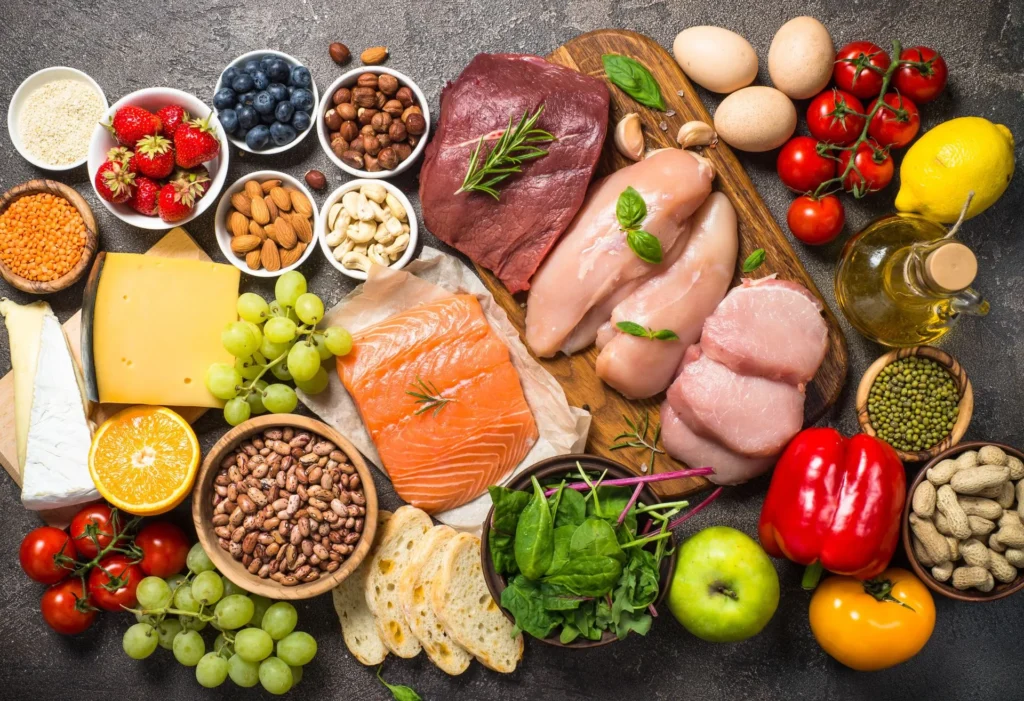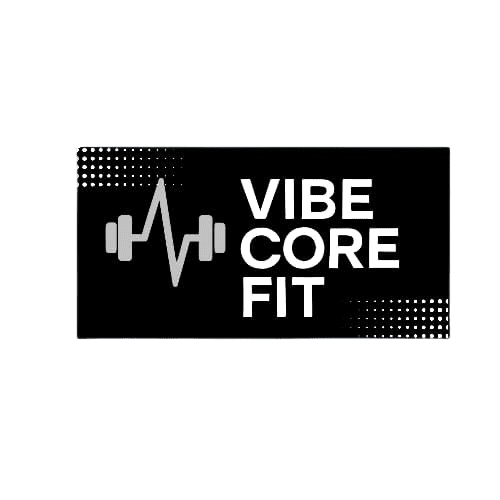

Eating the correct foods is only one aspect of nutrition; another is maximizing your body’s and mind’s capacity to flourish. Nutrition is the cornerstone of any objective, be it increased energy, weight loss, muscle growth, mental clarity, or just feeling better about yourself.
We are inundated with contradicting health advice, fad diets, and a bewildering array of food options in today’s fast-paced society. Unlocking your nutritional potential, however, isn’t about going to extremes; rather, it’s about realizing what your body requires and forming routines that promote long-term health.
The science underlying nutrition and health, what it truly means to unleash your nutrition potential, and easy, doable actions you can do right now are all covered in this blog.

What Does It Mean to “Unlock Your Nutrition Potential”?
Unlocking your nutrition potential means optimizing the food you eat to support your physical, mental, and emotional well-being. It’s the process of:
- Fueling your body with high-quality, nutrient-dense foods.
- Listening to your body’s signals and needs.
- Cultivating mindful eating habits.
- Customizing your nutrition to match your goals, lifestyle, and biology.
In short, it’s about creating a personalized, sustainable approach to eating that helps you thrive—not just survive.
The Power of Nutrient-Dense Foods
Calories are not all made equal. Your body reacts very differently to 500 calories of whole, nutrient-dense foods like vegetables, brown rice, and salmon than it does to 500 calories of fast food.
Nutrient-dense foods provide a high amount of vitamins, minerals, antioxidants, and fiber with relatively fewer calories. These foods include:
- Leafy greens (kale, spinach, arugula)
- Colorful vegetables (carrots, bell peppers, broccoli)
- Whole fruits (berries, apples, citrus fruits)
- Lean proteins (chicken, fish, eggs, legumes)
- Whole grains (quinoa, oats, brown rice)
- Healthy fats (avocado, nuts, seeds, olive oil)
Incorporating more of these foods into your meals helps your body function efficiently, fight inflammation, and recover faster from stress and workouts.
Macronutrients: Building Blocks of Energy
To unlock your full potential, it’s essential to understand macronutrients—carbohydrates, proteins, and fats—and how they function.
1. Carbohydrates: Your Body’s Main Fuel
Carbs often get a bad rap, but they are your body’s preferred source of energy, especially for your brain and muscles.
Whole grains, fruits, vegetables, and legumes are the best sources.
Limit: Sugary drinks, white bread, and pastries that contain refined carbohydrates.
2. Protein: Repair and Regeneration
Protein is crucial for muscle repair, immune health, hormone production, and satiety. Active individuals often need more protein than sedentary people.
- Best sources: Lean meats, fish, eggs, tofu, legumes, Greek yogurt.
3. Fats: Essential for Hormones and Brain Health
Healthy fats support hormone production, brain function, and nutrient absorption.
- Best sources: Avocados, olive oil, fatty fish, nuts, seeds.
Micronutrients: The Silent Powerhouses
Vitamins and minerals (micronutrients) play a critical role in nearly every bodily process—immune function, energy production, bone health, and more.
Some of the most important include:
- Vitamin D: Bone health, immunity (get it from sun exposure and fatty fish).
- Magnesium: Muscle function, mood (found in leafy greens, nuts).
- Iron: Oxygen transport (from red meat, lentils, spinach).
- B Vitamins: Energy production and metabolism (found in whole grains, eggs, leafy greens).
A colorful plate ensures a variety of these nutrients without needing to track every micronutrient.

Hydration: The Often-Overlooked Essential
Even mild dehydration can lead to fatigue, poor concentration, and slower recovery from exercise. Water is vital for digestion, nutrient transport, and detoxification.
Tips to stay hydrated:
- Aim for at least 8–10 cups of water daily (more if active).
- Add flavor with lemon, cucumber, or mint.
- Drink herbal teas or eat water-rich fruits like watermelon or oranges.
Gut Health: The Foundation of Nutrition Potential
Your gut microbiome—the trillions of bacteria living in your digestive tract—plays a critical role in digestion, immunity, mental health, and inflammation.
To support gut health:
- Eat fiber-rich foods (vegetables, legumes, whole grains).
- Include fermented foods (yogurt, kefir, kimchi, sauerkraut).
- Avoid overuse of antibiotics and artificial sweeteners.
- Stay active and manage stress, as both affect gut health.
A healthy gut can improve nutrient absorption and overall health outcomes.
Personalization: There’s No One-Size-Fits-All Diet
One of the biggest mistakes people make is following popular diets without considering their own needs.
Your ideal diet depends on factors such as:
- Activity level
- Body composition
- Genetics
- Health conditions
- Food preferences and tolerances
For example, an athlete may thrive on higher carbs, while someone with insulin resistance may benefit from a lower-carb approach. Some may feel great on a plant-based diet, while others feel better with some animal products.
The key: listen to your body. Track how different foods affect your energy, digestion, mood, and sleep.
Mindful Eating: Slow Down, Tune In
Nutrition is not just about what you eat—but how you eat. Mindful eating helps you build a healthier relationship with food.
Practices to try:
- Eat without distractions (like phones or TV).
- Chew slowly and thoroughly.
- Notice hunger and fullness cues.
- Reflect on how certain meals make you feel.
Mindful eating reduces overeating, improves digestion, and enhances satisfaction with meals.
Supplements: When and Why
Supplements can be helpful—but they’re not a substitute for a nutritious diet.
Commonly beneficial supplements:
- Multivitamin (as a safety net)
- Vitamin D (especially in winter)
- Omega-3 (for those who don’t eat much fish)
- Magnesium (for stress, muscle recovery)
- Probiotics (for gut health)
Always consult a healthcare provider before starting new supplements, especially if you have health conditions or take medications.

Meal Planning and Preparation: Your Secret Weapon
One of the most powerful ways to stay consistent with your nutrition goals is to plan ahead.
Meal planning benefits:
- Saves time and money
- Reduces unhealthy last-minute choices
- Helps with portion control and nutrient balance
Tips to start:
- Choose 2–3 go-to breakfast options.
- Prep proteins, grains, and veggies in bulk.
- Pack meals/snacks for busy days.
- Keep healthy staples on hand (like canned beans, frozen veggies, nut butter).
Nutrition for Specific Goals
Whether you’re aiming to lose fat, gain muscle, or boost energy, the right nutritional approach makes all the difference.
1. For Fat Loss
- Focus on whole, minimally processed foods.
- Prioritize protein to preserve muscle and manage hunger.
- Create a small, sustainable calorie deficit.
2. For Muscle Gain
- Increase calorie and protein intake.
- Eat consistently throughout the day.
- Fuel strength training sessions properly.
3. For Energy and Performance
- Eat balanced meals with carbs, protein, and fats.
- Don’t skip meals—especially around workouts.
- Stay hydrated and manage stress
Avoiding Common Nutrition Pitfalls
Here are a few habits that hold people back:
- Skipping meals: Can slow metabolism and lead to overeating later.
- Over-reliance on processed “healthy” foods: Protein bars, shakes, and frozen meals should supplement—not dominate—your diet.
- Yo-yo dieting: Repeated cycles of extreme dieting can disrupt hormones and metabolism.
- Neglecting sleep and stress: Nutrition doesn’t exist in a vacuum—lifestyle factors matter.
Conclusion: Today Is the First Step on Your Path to Realizing Your Nutritional Potential
Being consistent and purposeful is more important in nutrition than being flawless. Every meal is a chance to support your objectives, feel your best, and fuel your body.
Begin modestly. Replace one processed snack with nuts and fruit. Dinner should include more vegetables. Increase your water intake. These small changes add up.
You may unleash the full potential of your body and mind when you approach eating with curiosity, self-awareness, and a desire to feel well rather than merely look good.
Our website :- vibe core fit

6 comments. Leave new
Nice 👍🏻
**Summary:**
The text emphasizes creating a personalized, sustainable approach to nutrition that supports well-being rather than mere survival. It highlights that calories are not all equal, with nutrient-dense foods providing better health benefits than fast food. Essential macronutrients—carbohyd, proteins, and fats—are fundamental for energy, repair, and overall function. Micronutrients like vitamins and minerals play a key role in body processes. Proper hydration is crucial for digestion and cognitive function. Eating mindfully and considering individual health needs are key to optimizing nutrition. The gut microbiome’s diversity is important for digestion, immunity, and mental health. Nutrition should be tailored to personal circumstances rather than following popular diets blindly from abroad.
This is such an insightful read! I completely agree that not all calories are created equal—it’s fascinating how our bodies react so differently to nutrient-dense foods compared to processed ones. I’ve noticed that when I prioritize whole foods like vegetables and lean proteins, I feel more energized and recover faster after workouts. The section on macronutrients was a great reminder that carbs aren’t the enemy—they’re essential for energy, especially for active individuals. I’m curious, though, how do you determine your ideal macronutrient ratio? I’ve tried a few approaches but still feel like I’m guessing. Also, the part about mindful eating resonated with me—it’s so easy to get caught up in the “what” and forget about the “how.” Do you have any tips for practicing mindfulness during meals? I’d love to hear your thoughts!
Thank you so much for your thoughtful comment! I’m really glad you found the article insightful—it’s true, the quality of calories makes such a big difference in how we feel and perform. Whole foods truly are game changers when it comes to energy and recovery!
As for your question about finding the right macronutrient ratio—you’re definitely not alone! It can take a bit of experimentation, and it really depends on your goals, activity level, and how your body responds. A good starting point is the 40-30-30 split (carbs-protein-fat), then adjust from there based on your results and how you feel.
Mindful eating is such a powerful tool too! A few tips: try putting your fork down between bites, eat without screens, and take a few deep breaths before your meal. These small habits can make a big difference in how connected you feel to your food.
I’d love to keep the conversation going! Feel free to connect with me on social media—just search Vibe Core Fit on Instagram or Facebook, or use the links on my site. Looking forward to hearing more from you! 💪😊
Great points about personalized nutrition! I completely agree that a one-size-fits-all approach doesn’t work when it comes to diet. It’s fascinating how the same number of calories can have such different effects depending on the source. I’ve noticed that when I focus on nutrient-dense foods, I feel more energized and recover faster after workouts. The emphasis on macronutrients and micronutrients is spot on—it’s easy to overlook how interconnected they are with overall health. I’m curious, though, how do you balance macronutrients in your own diet? Do you track them or just go by how you feel? Also, what’s your take on intermittent fasting—do you think it complements a nutrient-dense approach, or does it complicate things? Would love to hear your thoughts!
thank you